With many eager to see Australia emerge as a renewable energy leader through the production, use and export of hydrogen, the Greater Geelong Hydrogen Technology Cluster was launched on Friday, becoming the latest addition to the National Energy Resources Australia nationwide network of hydrogen technology clusters.
The industry-led National Energy Resources Australia (NERA) committed $1.85 million in February to establish a network of 15 regional clusters across all states and territories designed to establish Australia’s global identity in hydrogen technology and expertise .
“Technology clusters are geographic concentrations of interconnected businesses and organisations in a particular field, that both collaborate and compete to increase productivity and innovation,” NERA said at the time.
Startupbootcamp Australia will lead the Greater Geelong Hydrogen Technology Cluster and has plans to identify collaboration opportunities and projects within the hydrogen sector which, according to a 2019 Deloitte report, could increase the national GDP by up to $26 billion.
Startupbootcamp Australia CEO Trevor Townsend said the cluster will focus on helping decarbonise sectors such as manufacturing, agriculture, energy, and transportation to create a market for hydrogen.
“It’s our firm belief that this hydrogen technology cluster will not only deliver economic benefits to the Greater Geelong and Barwon South West region but also put it on the map globally as a centre of innovation and technology in the growing international hydrogen economy,” he said.
“Our focus will be on commercialising hydrogen and building a market by prioritising projects and collaboration with corporates, start-ups, scale-ups and SMEs.”
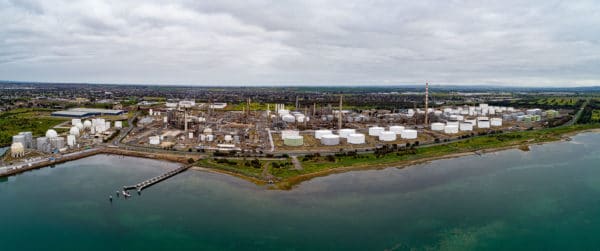
Image: Viva
Townsend said the Geelong Cluster would waste no time with Expressions of Interest from parties looking to participate in the ecosystem to open on June 8, 2021. They will remain open until the end of the financial year.
“We will be seeking innovative demand-side projects in the region and looking for supply-side interest to participate in these trials or projects,” he said.
Townsend said the goal for the cluster is to create 100 start-ups and to move hydrogen projects up through the technology, commercialisation and investment readiness levels.
“The cluster is by design a way to improve collaboration among its supporters and help bridge the gap between the desire of companies to reduce their carbon footprint and the action to do so,” he said.
“Alongside our goal to develop the demand side, we’re looking to develop a hydrogen innovation economy, creating a global exporter of hydrogen innovation and business models alongside the commodity itself.”
The Greater Geelong Cluster is one of four hydrogen technology clusters planned for Victoria. The Clayton Hydrogen Cluster centres on Port Anthony in the state’s east while the Mallee Hydrogen Technology Cluster covers the north west of Victoria. The Gippsland Hydrogen Cluster will help identify new hydrogen-focussed technologies in the state’s south east.
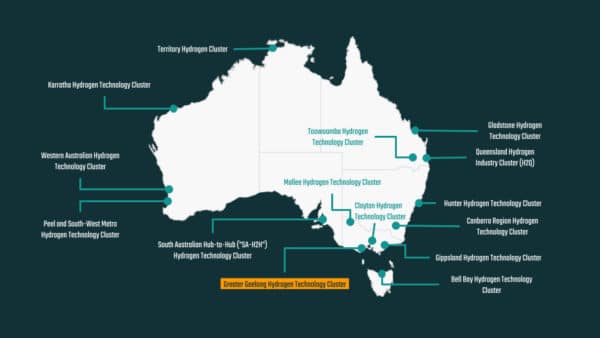
Image: Startupbootcamp
Victorian Minister for Energy Lily D’Ambrosio, who officially opened the Greater Geelong Cluster on Friday, said it will help the state to play a leading role in the development of Australia’s hydrogen industry.
“Industries like hydrogen from renewables have huge potential, not only to boost power supply and reliability, but to create jobs locally and tackle climate change globally,” she said.
“Our four Regional Hydrogen Technology Clusters will enable Victoria to take the lead in developing a hydrogen industry that will benefit the state’s regional economies such as Greater Geelong.”
The launch of the Geelong Cluster comes just days after the addition of both the Gladstone and Toowoomba clusters in Queensland to the national network.
As part of the launch, Startupbootcamp also unveiled the H2 StartupBase platform which maps the hydrogen start-ups around the world.
Startupbootcamp’s energy program director Abs Bulbuliya said the H2 StartupBase is a valuable platform that will help accelerate and connect hydrogen start-ups locally, nationally and internationally with projects and customers.
The platform, which will continue to grow, already features more than 3,500 hydrogen related start-ups and organisations from around the world.
This content is protected by copyright and may not be reused. If you want to cooperate with us and would like to reuse some of our content, please contact: editors@pv-magazine.com.




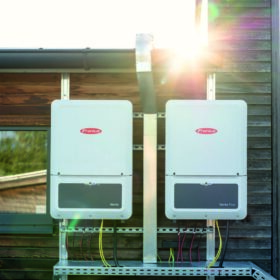

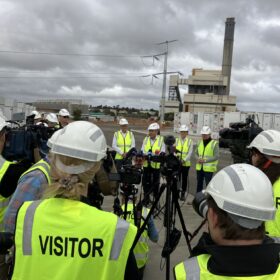
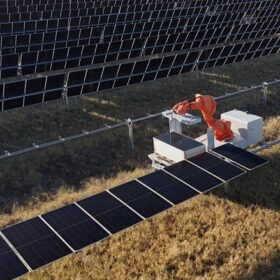
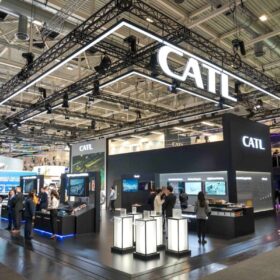
1 comment
By submitting this form you agree to pv magazine using your data for the purposes of publishing your comment.
Your personal data will only be disclosed or otherwise transmitted to third parties for the purposes of spam filtering or if this is necessary for technical maintenance of the website. Any other transfer to third parties will not take place unless this is justified on the basis of applicable data protection regulations or if pv magazine is legally obliged to do so.
You may revoke this consent at any time with effect for the future, in which case your personal data will be deleted immediately. Otherwise, your data will be deleted if pv magazine has processed your request or the purpose of data storage is fulfilled.
Further information on data privacy can be found in our Data Protection Policy.